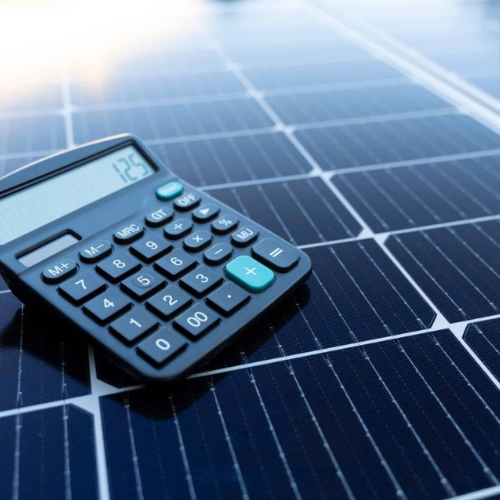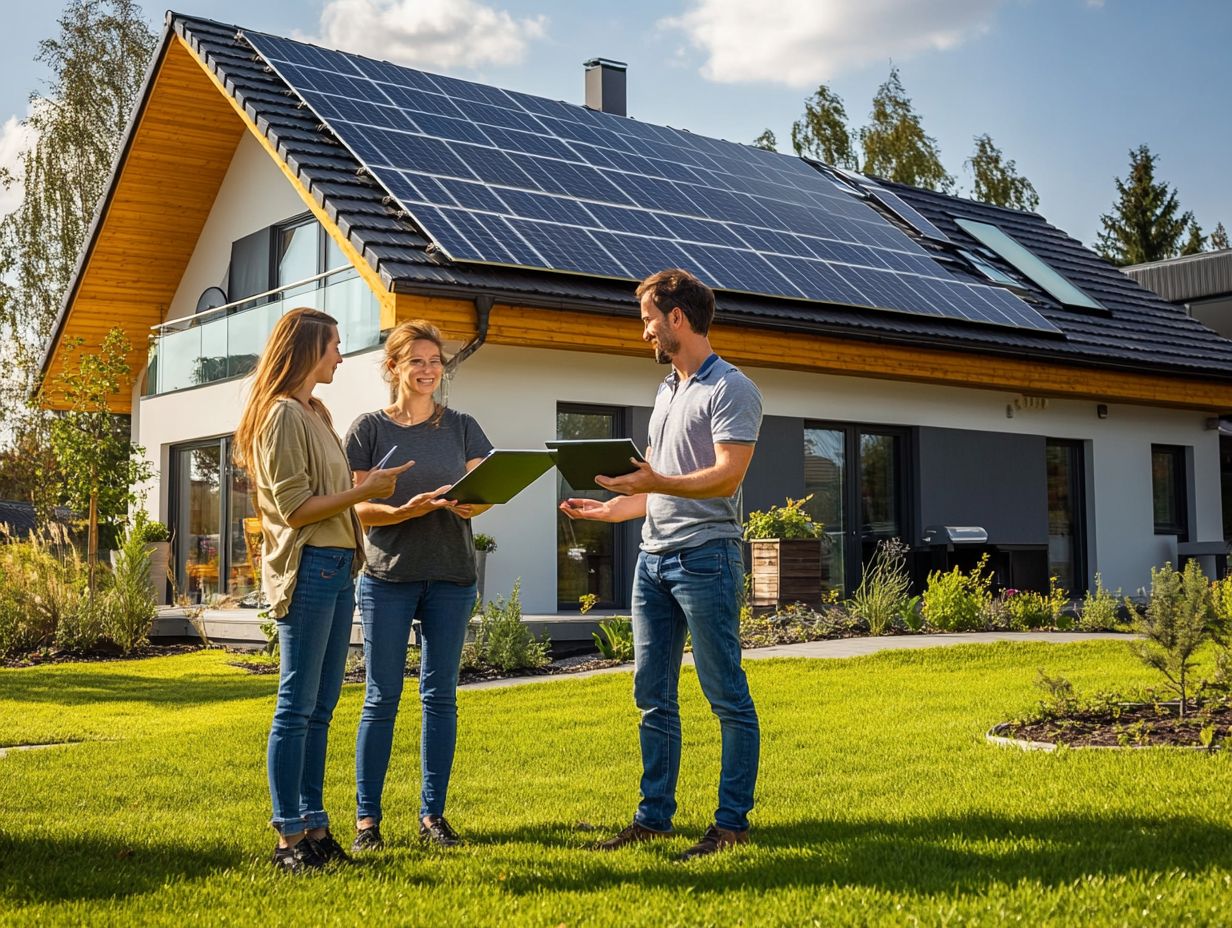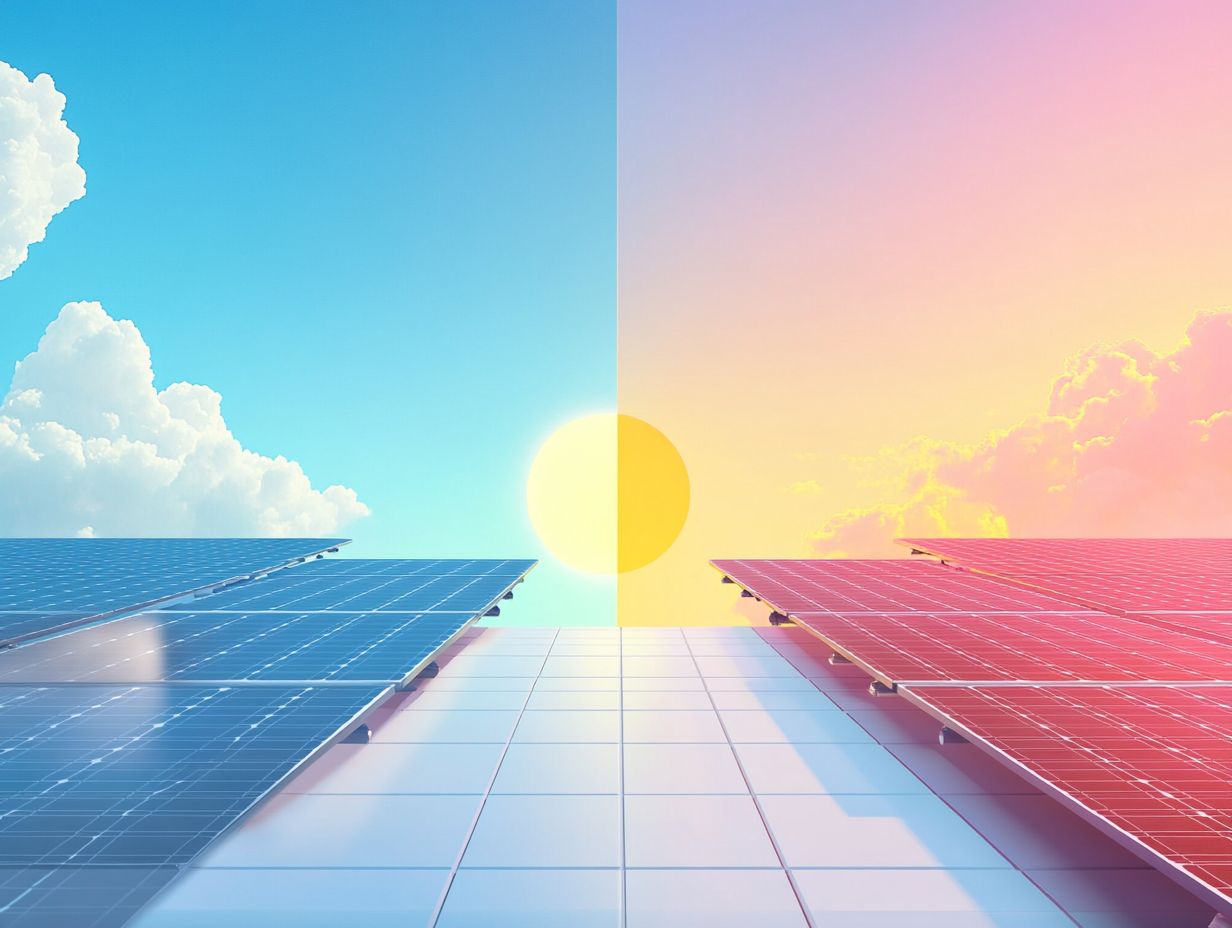Contents
- 1 Why Choosing the Right Solar Installer Matters
- 2 Vetting Potential Solar Installers
- 3 Understanding Quality Standards for Solar Installation
- 4 Ensuring Quality Workmanship and Materials
- 5 Cost Considerations for Quality Solar Installations
- 6 Common Questions About Solar Installation
- 6.1 What should I look for when choosing a solar installer?
- 6.2 What are some red flags to watch out for when vetting solar installers?
- 6.3 How can I ensure the quality of the solar installation?
- 6.4 What specific certifications or qualifications should I look for in a solar installer?
- 6.5 What questions should I ask a potential solar installer during the vetting process?
- 6.6 Do I need to do any research on my own before choosing a solar installer?
Selecting the right solar installer is key to getting the most out of your renewable energy investment. A quality installer will not only ensure an efficient and reliable solar energy setup but also help extend the lifespan of your solar system by adhering to industry standards and quality assurance.
This article dives into the advantages of working with skilled professionals and gives you tips on how to vet potential installers, considering contractor qualifications and experience. You’ll also learn about the certifications, licensing, and standards that show quality and ensure compliance with government regulations. Plus, it covers what to look for in installation contracts, including warranty terms and service agreements, and how to balance quality with affordability by exploring pricing and financing options. This way, you can make informed decisions as you embark on your solar journey.
Why Choosing the Right Solar Installer Matters

Choosing the right solar installer is crucial to make sure your solar setup meets top-notch quality standards and performs at its best. This involves understanding the installation process and ensuring the contractor’s reliability.
A good installer is not only knowledgeable about the latest solar technology; they also have in-depth knowledge of local regulations, industry standards, and safety protocols, making sure everything complies during the installation process.
By taking the time to thoroughly vet potential solar contractors, you can check out their credentials, certifications, insurance coverage, and expertise. This thorough due diligence not only helps ensure the efficiency of your photovoltaic system but also boosts your overall return on investment by minimizing installation challenges.
Benefits of Working with a Qualified Installer
Working with a quality solar installer brings numerous benefits that can really enhance your overall experience and satisfaction with the solar installation process, including energy production optimization and long-term performance tracking.
When you choose a skilled and reputable installer, you can count on them to optimize your system design for energy production, stick to safety standards, provide ongoing maintenance services, and ensure energy efficiency through performance monitoring. Their expertise in project management and technological advancements means you’ll get efficient solar performance while maximizing your savings through careful planning and execution.
A knowledgeable installer knows the local codes, government regulations, and industry benchmarks inside and out, which helps keep everything compliant and minimizes the risk of delays during installation. Plus, they can guide you through financing options, including solar incentives and solar tax credits, and offer flexible payment plans, making the switch to solar energy much more budget-friendly.
This customer-focused approach not only simplifies project management but also builds trust and keeps you engaged throughout the entire process by ensuring transparency and client education. With competitive pricing and the ability to tailor solutions to fit your specific needs, including consultation and site assessment, choosing a quality installer will lead you to a smoother and more satisfying journey toward adopting sustainable energy.
National Renewable Energy Laboratory (NREL). (2015). Best Practices in PV System Installation. Link
Vetting Potential Solar Installers
When vetting solar installers, it is essential to make sure you pick a contractor who has the right credentials and meets the quality standards for solar installation, including environmental certifications and ethical practices.
By taking the time to evaluate their experience and expertise, you can figure out if they have the necessary certifications, valid licenses, insurance coverage, and a strong project portfolio to protect your investment.
Plus, checking out customer reviews, referrals, and independent reviews will provide valuable insights into their reputation in the local market, helping you understand how reliable they are and the quality of service you can expect.
Questions to Ask and Factors to Consider
When you’re vetting solar installers, asking the right questions is crucial to figure out if they’re a good fit for your project. Key things to consider include their expertise in solar technology, experience with similar residential solar or commercial solar projects, and knowledge of local regulations.
Getting a handle on the project scope, installation timeline, equipment quality, and warranty options can give you valuable insight into what the installer can actually deliver.
You might want to ask about the types of solar panels and inverters they usually work with. Also, inquire whether they consider installation types and energy audits, since their familiarity with specific products can really impact how smoothly your installation goes.
It’s also a good idea to inquire about how they ensure optimal performance through performance metrics and what customer engagement strategies they have in place—this can help you understand their commitment to quality service and customer satisfaction.
Don’t forget to explore their after-sales support process, including system maintenance and troubleshooting, and how they tackle potential maintenance issues; this can be key for your long-term satisfaction and energy independence.
By diving into these areas, you’ll have a better sense of whether the installer aligns with your expectations, project financing, and project needs.
Understanding Quality Standards for Solar Installation

Understanding the quality standards for solar installers is super important for making sure your solar installation hits all the right notes for safety, performance, and ecological footprint.
These quality standards cover a variety of criteria, such as certifications from well-known trade associations, adherence to regulatory compliance, and following industry regulations. Not only do these standards showcase the installer’s technical know-how, but they also play a big role in the long-term efficiency, reliability, and sustainability of your solar system.
Certifications and Industry Standards
Certifications and industry standards are super important when it comes to deciding how credible a solar installer is and how serious they are about quality assurance and performance guarantees.
When you see recognized certifications, you can trust that the installer has gone through tough training, follows the latest best practices in solar technology, and is part of reputable installer networks. This means they’re on top of regulatory compliance and can deliver high-performance solar systems with minimal ecological footprint.
These credentials not only show that the installer knows their stuff when it comes to design and installation but also indicate their commitment to safety, efficiency, and environmental impact—both essential for creating durable solar energy solutions.
The most respected certifications, like those from the North American Board of Certified Energy Practitioners (NABCEP), assure you that the installer is well-versed in current technology, installation methods, code requirements, and solar installation trends.
Having this level of expertise can make a big difference in the performance, reliability, and energy output of your solar installation. It helps reduce the chances of costly mistakes and maximizes energy production for homeowners like you, ultimately leading to a higher return on investment.
Ensuring Quality Workmanship and Materials
Making sure you have quality workmanship and materials in your solar installation is key to getting the best performance and durability out of your system, contributing to long-term performance and sustainability.
A reputable solar installer will focus on using top-notch materials and sticking to best practices during the installation process, ensuring craftsmanship and adherence to installation certifications. This means they’ll take care of getting the necessary permits, managing the project efficiently to avoid any delays, and providing client testimonials to demonstrate their installer reputation.
Plus, when you invest in quality workmanship, you often get warranties, performance guarantees, and reliable customer support that bring you peace of mind as a homeowner.
King, D. L., Boyson, W. E., & Kratochvil, J. A. (2004). Photovoltaic array performance model. Sandia National Laboratories. Link
What to Look for in a Solar Installation Contract
When you’re reviewing a solar installation contract, it’s super important to get a good grasp of the project scope, warranties, service agreements, and installation timeline tucked into the document.
A solid contract should clearly outline the responsibilities of both you and the installer, making sure everyone knows the performance metrics, installation team responsibilities, and expectations during and after the installation.
Don’t overlook the payment terms either; they should detail the total cost, the payment schedule, project financing options, and any penalties for late payments. Being transparent about these aspects helps build trust between you and the installer, making it less likely for disputes to pop up later on, and ensuring transparency and ethical practices.
- Project scope
- Warranties
- Service agreements
- Installation timeline
- Payment terms
Be sure to check for clauses about maintenance and repair obligations, system maintenance, and after-sales support too. These clauses can significantly enhance your satisfaction, ensuring that quality service is consistently available over time.
A well-crafted contract will protect both you and the installer by clearly laying out liability issues, ensuring that everyone knows their rights and responsibilities, and aligning with environmental certifications if something unexpected comes up.
Cost Considerations for Quality Solar Installations

Cost considerations play a big role when you’re planning a quality solar installation. It’s not just about the upfront costs; you also need to think about the potential long-term savings from going solar, boosted by solar rebates and solar incentives.
When you’re looking at financing options and comparing prices, don’t forget to factor in any available tax incentives, solar tax credits, and rebates. These can help lower your overall expenses while boosting your return on investment and contributing to energy independence.
Balancing Quality and Affordability
Balancing quality and affordability in solar installation can be a real juggling act for you as a homeowner, but it’s key to getting the results you want and ensuring energy efficiency. While it may be tempting to choose the lowest bid, investing in a quality solar installer can lead to better performance guarantees, reduced ecological footprint, and long-term savings on your energy bills. That’s a smart move for your financial future.
To navigate this tricky landscape, it’s important for you to really dig into those installer quotes. Don’t just look at the prices; also consider the reputation, client education, and experience of the installers. Prioritizing service and materials is a must. Seek out those who offer high-quality components, solid warranties, and performance tracking, as these contribute significantly to the durability and efficiency of your system.
A good project management approach, with proper consultation and site assessment, can ensure everything runs smoothly and on time, minimizing disruptions along the way. Plus, keeping an eye on customer satisfaction and client testimonials can really help you decide which installer to go with. By carefully analyzing all these factors, including equipment quality and installation team efficiency, you can find the right balance that fits your budget without skimping on quality.
Common Questions About Solar Installation
What should I look for when choosing a solar installer?
When selecting a solar installer, prioritize their qualifications and experience to ensure a successful installation. Look for installers who are certified by reputable organizations, have a track record of successful installations, have good customer reviews, and demonstrate reliability through their project portfolio.
What are some red flags to watch out for when vetting solar installers?

Be mindful of these red flags when vetting solar installers: lack of proper certifications, no references or customer reviews, and pushy sales tactics. It’s also important to be wary of significantly lower prices compared to other installers.
How can I ensure the quality of the solar installation?
To guarantee the quality of your solar installation, ensure the installer uses high-quality materials and provides a warranty for their work. Ask about their installation process and make sure they follow industry standards. It’s also helpful to request pictures of previous installations.
What specific certifications or qualifications should I look for in a solar installer?
Indeed, specific certifications and qualifications are crucial when selecting a solar installer. Some reputable organizations that offer certifications for solar installers include the North American Board of Certified Energy Practitioners (NABCEP) and the Solar Energy Industries Association (SEIA).
What questions should I ask a potential solar installer during the vetting process?
Here are some key questions to ask a potential solar installer during the vetting process: their experience and qualifications, their installation process, the type of materials they use, and if they offer any warranties. You can also ask for references and customer reviews to get a better sense of their track record.
Do I need to do any research on my own before choosing a solar installer?
Yes, it’s important to do some research on your own before choosing a solar installer. This includes researching the average cost of solar installations in your area. Understanding the different types of solar panels and their efficiency is also crucial, and familiarizing yourself with industry standards and best practices. Take the first step towards sustainable energy by researching your options.







